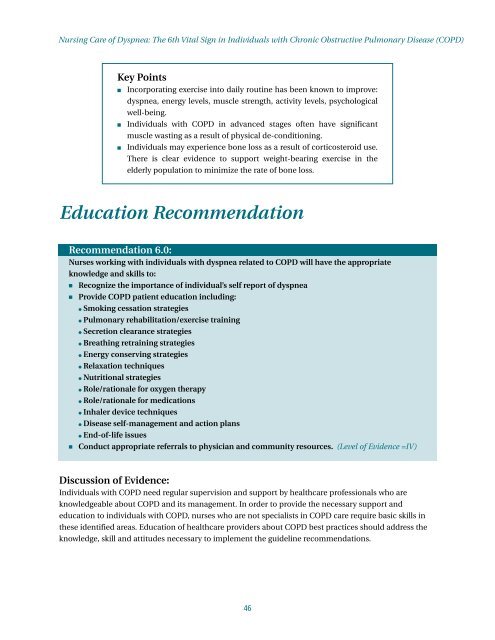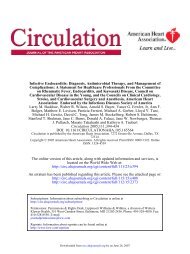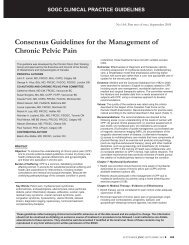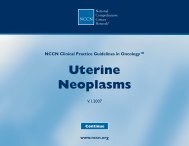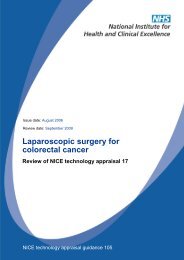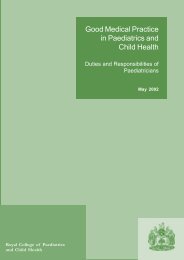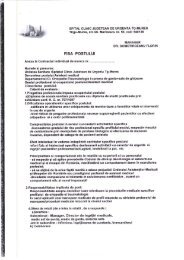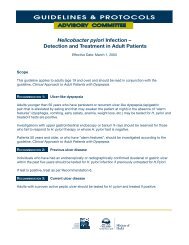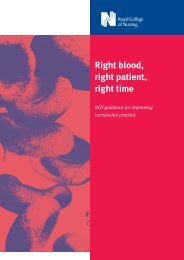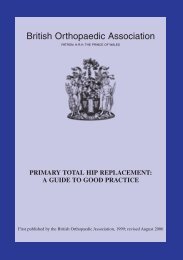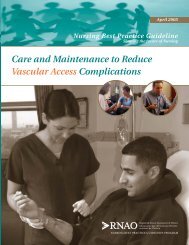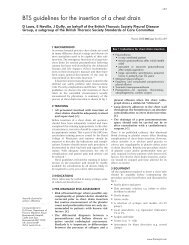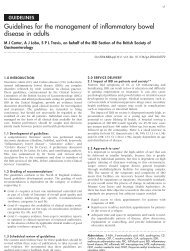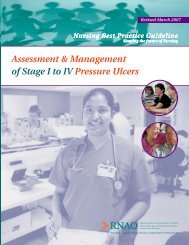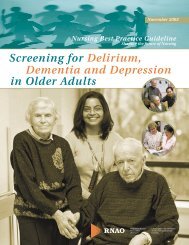Nursing Care of Dyspnea: The 6th Vital Sign in Individuals with ...
Nursing Care of Dyspnea: The 6th Vital Sign in Individuals with ...
Nursing Care of Dyspnea: The 6th Vital Sign in Individuals with ...
You also want an ePaper? Increase the reach of your titles
YUMPU automatically turns print PDFs into web optimized ePapers that Google loves.
<strong>Nurs<strong>in</strong>g</strong> <strong>Care</strong> <strong>of</strong> <strong>Dyspnea</strong>: <strong>The</strong> <strong>6th</strong> <strong>Vital</strong> <strong>Sign</strong> <strong>in</strong> <strong>Individuals</strong> <strong>with</strong> Chronic Obstructive Pulmonary Disease (COPD)Key Po<strong>in</strong>ts■■■Incorporat<strong>in</strong>g exercise <strong>in</strong>to daily rout<strong>in</strong>e has been known to improve:dyspnea, energy levels, muscle strength, activity levels, psychologicalwell-be<strong>in</strong>g.<strong>Individuals</strong> <strong>with</strong> COPD <strong>in</strong> advanced stages <strong>of</strong>ten have significantmuscle wast<strong>in</strong>g as a result <strong>of</strong> physical de-condition<strong>in</strong>g.<strong>Individuals</strong> may experience bone loss as a result <strong>of</strong> corticosteroid use.<strong>The</strong>re is clear evidence to support weight-bear<strong>in</strong>g exercise <strong>in</strong> theelderly population to m<strong>in</strong>imize the rate <strong>of</strong> bone loss.Education RecommendationRecommendation 6.0:Nurses work<strong>in</strong>g <strong>with</strong> <strong>in</strong>dividuals <strong>with</strong> dyspnea related to COPD will have the appropriateknowledge and skills to:■ Recognize the importance <strong>of</strong> <strong>in</strong>dividual’s self report <strong>of</strong> dyspnea■ Provide COPD patient education <strong>in</strong>clud<strong>in</strong>g:● Smok<strong>in</strong>g cessation strategies● Pulmonary rehabilitation/exercise tra<strong>in</strong><strong>in</strong>g● Secretion clearance strategies● Breath<strong>in</strong>g retra<strong>in</strong><strong>in</strong>g strategies● Energy conserv<strong>in</strong>g strategies● Relaxation techniques● Nutritional strategies● Role/rationale for oxygen therapy● Role/rationale for medications● Inhaler device techniques● Disease self-management and action plans● End-<strong>of</strong>-life issues■ Conduct appropriate referrals to physician and community resources. (Level <strong>of</strong> Evidence =IV)Discussion <strong>of</strong> Evidence:<strong>Individuals</strong> <strong>with</strong> COPD need regular supervision and support by healthcare pr<strong>of</strong>essionals who areknowledgeable about COPD and its management. In order to provide the necessary support andeducation to <strong>in</strong>dividuals <strong>with</strong> COPD, nurses who are not specialists <strong>in</strong> COPD care require basic skills <strong>in</strong>these identified areas. Education <strong>of</strong> healthcare providers about COPD best practices should address theknowledge, skill and attitudes necessary to implement the guidel<strong>in</strong>e recommendations.46


